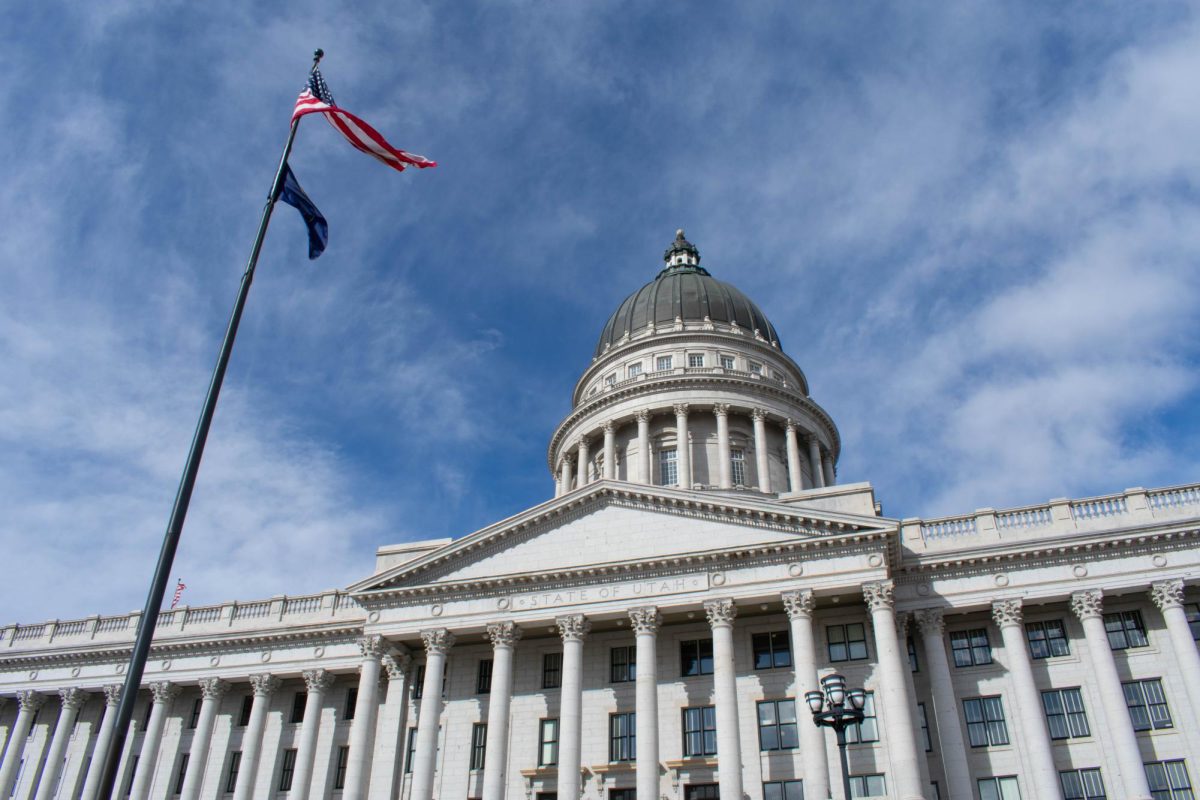The Utah Board of Higher Education met for the first time since the conclusion of Utah’s 2025 legislative session last week, and its members have already begun taking action on some of this session’s “high impact” legislation.
UBHE spent over two hours discussing the 19 higher education bills passed during the session. They outlined what action items the bills require from the Utah System of Higher Education and its members. This includes providing legislative guidance, approving plans, administering grant programs and more.
For almost half of those two hours, UBHE discussed HB265 and approved USHE’s proposed guidance for institutions developing strategic reinvestment plans.
“In the totality of the entire session and everything that happened, higher ed has come out once again demonstrating its critical value to this state,” Commissioner of Higher Education Geoffrey Landward said. Ultimately, he said he feels optimistic after the conclusion of the session.
HB265, OCHE Guidance and the Program Outcomes Dashboard
USHE Deputy Commissioner and CFO Nate Talley introduced HB265’s timeline and clarified both the academic institutions’ and USHE’s role in developing the strategic reinvestment plans.
The proposed guidance encourages the Office of the Commissioner of Higher Education to be involved in the strategic reinvestment process by providing analytics or market data to institutions.
For a higher education institution to have the 10% of their budget reallocated back to the institution, it’s plan will have to be approved by the UBHE by June 30. Then, the institution will have to receive a favorable recommendation from the Higher Education Appropriations Subcommittee and be approved by the Executive Appropriations Subcommittee. These meetings take place in August and September.
For the next two years, institutions will also have to present details on the implementation of their plans to UBHE every June. Any modifications will go through a similar approval process as the original plans.
“We might learn more as we go, so this statute does a lot for those plans to be modified over time,” Talley said.
USHE Chief Economist Carrie Mayne gave UBHE a first look at the new Program Outcomes Dashboard which had been finished just the night before. This dashboard provides universities with a framework for evaluating their programs based on student outcomes.
“One of the key offerings we wanted to display here in this dashboard is to look at trend data,” Mayne said. “So not just a moment in time, but we need to see how these programs function over a time window.”
The dashboard ranks each university’s top and bottom programs using data on the program’s enrollments, graduates, re-enrollments, job placements and placement salaries. This evaluation criteria was outlined by legislatures in HB265, and provides insight into what university programs are likely to receive reinvestment and those that aren’t.
For the U, the dashboard placed programs like mathematics, health services, engineering, biology and computer science in the top 10 list. The bottom 10 is made up of linguistics, parks and recreation, peace studies and conflict resolution, mental health and social services and the arts.
The data used in the dashboard is from 2018-2022, so that students in programs potentially facing cuts will still be able to graduate in that program. But, this raised concerns among some of the board members.
For example, Tina Marriott brought up the rapidly changing climate that is higher education today, she questioned if this older data is representing programs properly.
“The world is rapidly changing in the last few years post-covid,” she said. “The placement data, it’s just not a leading indicator if people are going to reference [the dashboard] for where we’re headed.”
“High Impact” Bills
Seven of the 19 higher education bills passed during the session were deemed “High Impact.” This means that bill involves significant economic development opportunities that could impact the state’s economy or requires the use of substantial resources.
Each of these high impact bills requires the involvement of UBHE, USHE, the OCHE or its staff in some way. Assistant Commissioner of Strategic and Government Affairs Katie Mazzie explained those entities’ roles in each bill.
SB282 changes how a university searches for a president by specifying that the search committee is not subject to the Open and Public Meetings Act. It also specifies confidentiality requirements. The search committee will present its three finalists to UBHE, but they don’t have to be publicly named.
HB269, a bill requiring institutions providing student housing to assign a student to a sex-designated dwelling unit that corresponds with the student’s sex at birth was not deemed high impact. However, it was still included in the meeting’s discussion as it requires UBHE to make policies and provide guidance to institutions for complying with the bill.
HB260 repeals the PRIME grant program and establishes the First Credential grant program for local education agencies and a new scholarship for students. The OCHE will be involved in developing a First Credential Oversight Committee.
HB447 establishes a $65 million grant program for LEAs to expand Catalyst Centers that teach career and technical education. The bill requires USBE and USHE to work with LEA to establish partnerships with local industries and higher education institutions.
HB530 reorganizes the Utah Innovation Lab into the Nucleus Institute following a similar governance structure to my529. The bill requires the Office of the Commissioner of Higher Education to provide support for the program through contract and fees.
Landward also discussed SB334, which establishes a Center for Civic Excellence pilot program at Utah State University that implements general education.
“This bill has generated significant conversation publicly and internally, and I wanted to take a couple of minutes to talk about what this bill is, and what it’s not,” Landward said.
Last legislative session, Sen. John Johnson (R) proposed the bill be tested at the U. This was received negatively by USHE and the legislature, and the bill was reworked and passed this session.
The bill requires the program’s Vice Provost to report to the OCHE and OCHE to the Education Interim annually. Additionally, the Center for Civic Excellence will provide a final report of the program’s outcomes by July 1, 2029.




